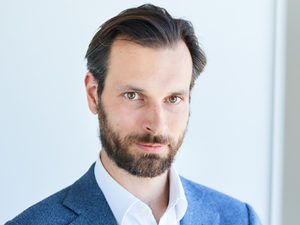Gilead attacks remdesivir patent of Chinese research institute at UPC
US biotech company Gilead has filed a new revocation action with the UPC targeting a patent owned by the Chinese Academy of Military Medical Sciences. The patent could potentially disrupt sales of the COVID-19 drug remdesivir. Gilead is now going on the offensive in Europe.
19 August 2025 by Mathieu Klos
The European Patent Office recently granted EP 3 854 403. The patent belongs to the Academy of Military Medical Sciences based in Beijing and protects the use of substituted aminopropionate compounds in the treatment of SARS-Cov-2 infections.
This means it is potentially a threat to the sale of remdesivir. Gilead developed the drug under the brand name Veklury as a broad-spectrum antiviral medication. It was originally intended for the treatment of Ebola virus disease and Marburg virus infections, but since the coronavirus pandemic it has been used primarily as a post-infection treatment for COVID-19.
Gilead launches two-pronged attack
EP 403 is a thorn in Gilead’s side. The US company directly filed an opposition at the EPO after it granted the patent with unitary effect at the beginning of June. Chris Hoggett from UK IP firm Carpmaels & Ransford is handling the opposition. Also part of the Carpmaels team are partners Jennifer Antcliff and Paul Kaufman as well as associates Joanna Rowley and Stephanie Willing.
- Chris-Hoggett
- Jennifer Antcliff
- Paul Kaufman
Then, with an international team from Hoyng ROKH Monegier, Gilead filed an additional action with the UPC’s Milan central division seeking revocation of the patent in the UPC territory (case ID: ACT_29152/2025). Gilead is counting on a quick decision from the UPC.
German partner Christine Kanz, Amsterdam partner Peter van Schijndel and Amandine Metier from Paris lead the Hoyng ROKH team. It also includes Akiva Friedman, Moritz Lohr, Théophile Rebuffel, Carolin Wollschlaeger, and Lisa-Marie Rauschendorfer.
- Christine Kanz
- Peter van Schijndel
- Amandine Métier
JUVE Patent does not yet know who is representing the Academy of Military Medical Sciences at the UPC. Anne Francastel from the French IP law firm Lavoix is responsible for the EP 403 application. With its mixed team of patent attorneys and lawyers, the firm is well equipped for UPC cases. It is currently representing two cases for ArcelorMittal over steel strips and Brandline Group over folding bicycles.
Fast-track revocation
If the central division under presiding judge Andrea Postiglione adheres to the court’s tight deadlines, Gilead could receive a decision on the patent’s validity as early as next summer. The EPO Opposition Division is likely to take considerably longer. In view of that the EPO has already decided to accelerate the opposition proceeding in this case.
The second judge in the UPC case is Dutch judge Marije Knijff. The court will hear the case in English.
- Andrea Postiglione
- Marije Knijff
Revocation actions over pharmaceuticals have had a certain appeal in the industry since the UPC launched. Early on, Astellas sued to invalidate two patents belonging to Healios and the University of Osaka. Sanofi also took action against Amgen’s Praluent patent in the court’s first year. In addition, Pfizer attacked a GSK patent for an RSV vaccine.
Pharma industry shows restraint
In contrast, pharmaceutical companies have so far been rather reluctant to file infringement suits with the UPC. But that now seems to be changing. GSK recently filed several lawsuits against Moderna, BioNTech and Pfizer for mRNA patents at the UPC.
Furthermore, Merz filed a lawsuit in Paris against Viatris at the beginning of August. The case concerns an SPC for the multiple sclerosis drug fampridine, which Merz markets under the brand name Fampyra.
The court is also doing its part to remain attractive for pharmaceutical lawsuits. Last week the UPC Court of Appeal granted a final victory to Boehringer in a PI case against Zentiva. Previously the local division Lisbon had rejected a PI against Zentiva selling a generic version of respiratory drug Ofev.









